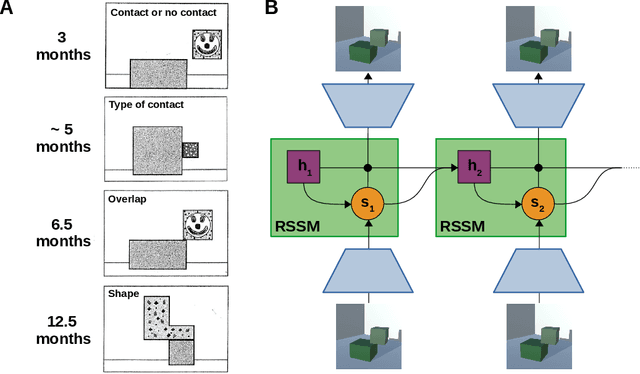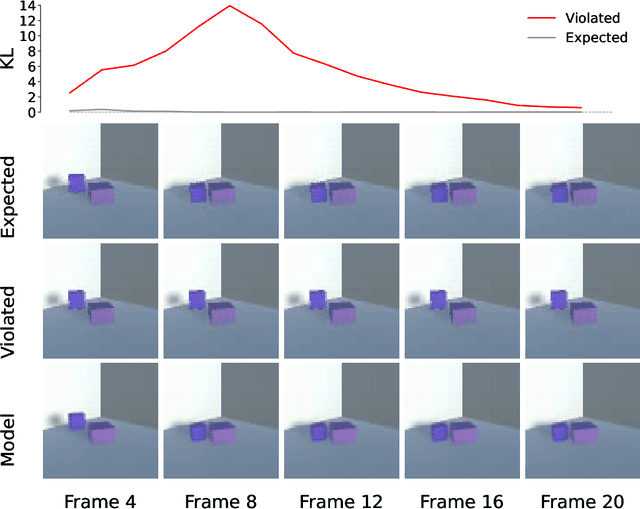Stochastic Gradient Descent Captures How Children Learn About Physics
Paper and Code
Sep 25, 2022



As children grow older, they develop an intuitive understanding of the physical processes around them. They move along developmental trajectories, which have been mapped out extensively in previous empirical research. We investigate how children's developmental trajectories compare to the learning trajectories of artificial systems. Specifically, we examine the idea that cognitive development results from some form of stochastic optimization procedure. For this purpose, we train a modern generative neural network model using stochastic gradient descent. We then use methods from the developmental psychology literature to probe the physical understanding of this model at different degrees of optimization. We find that the model's learning trajectory captures the developmental trajectories of children, thereby providing support to the idea of development as stochastic optimization.
 Add to Chrome
Add to Chrome Add to Firefox
Add to Firefox Add to Edge
Add to Edge